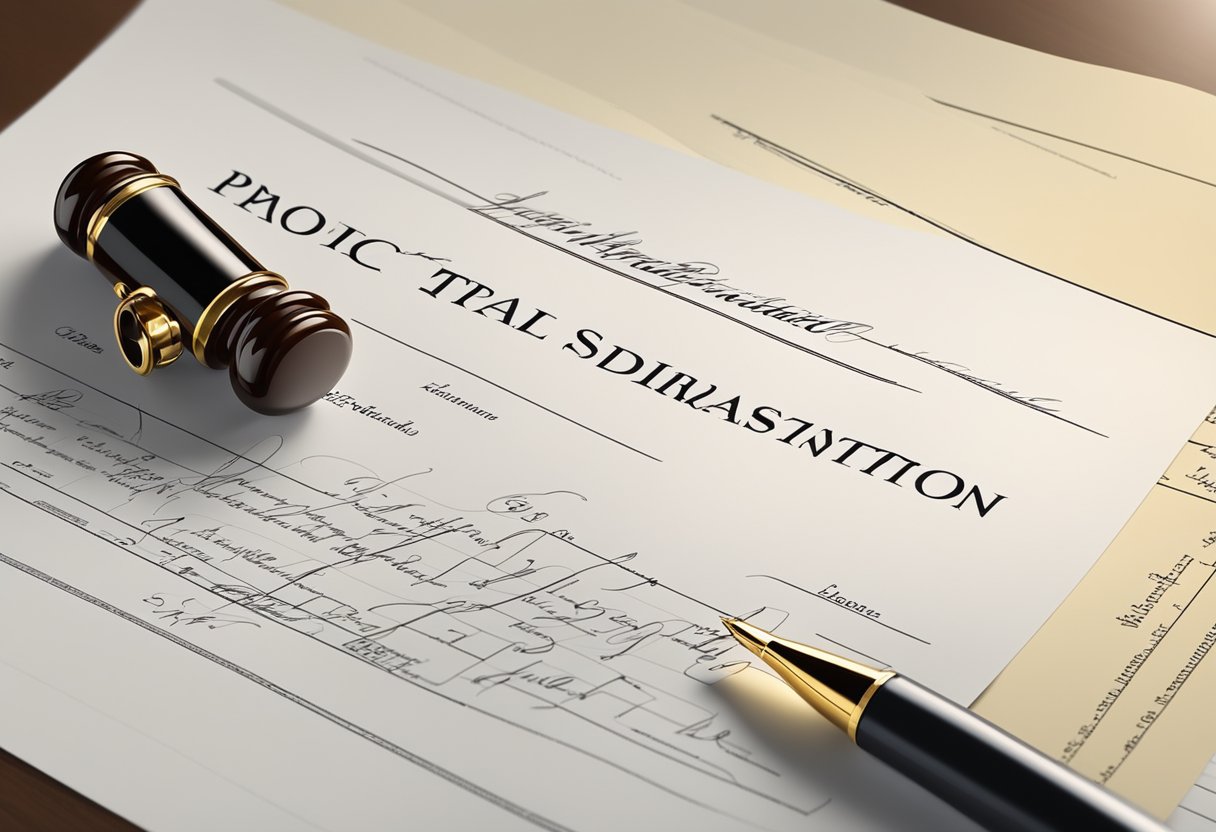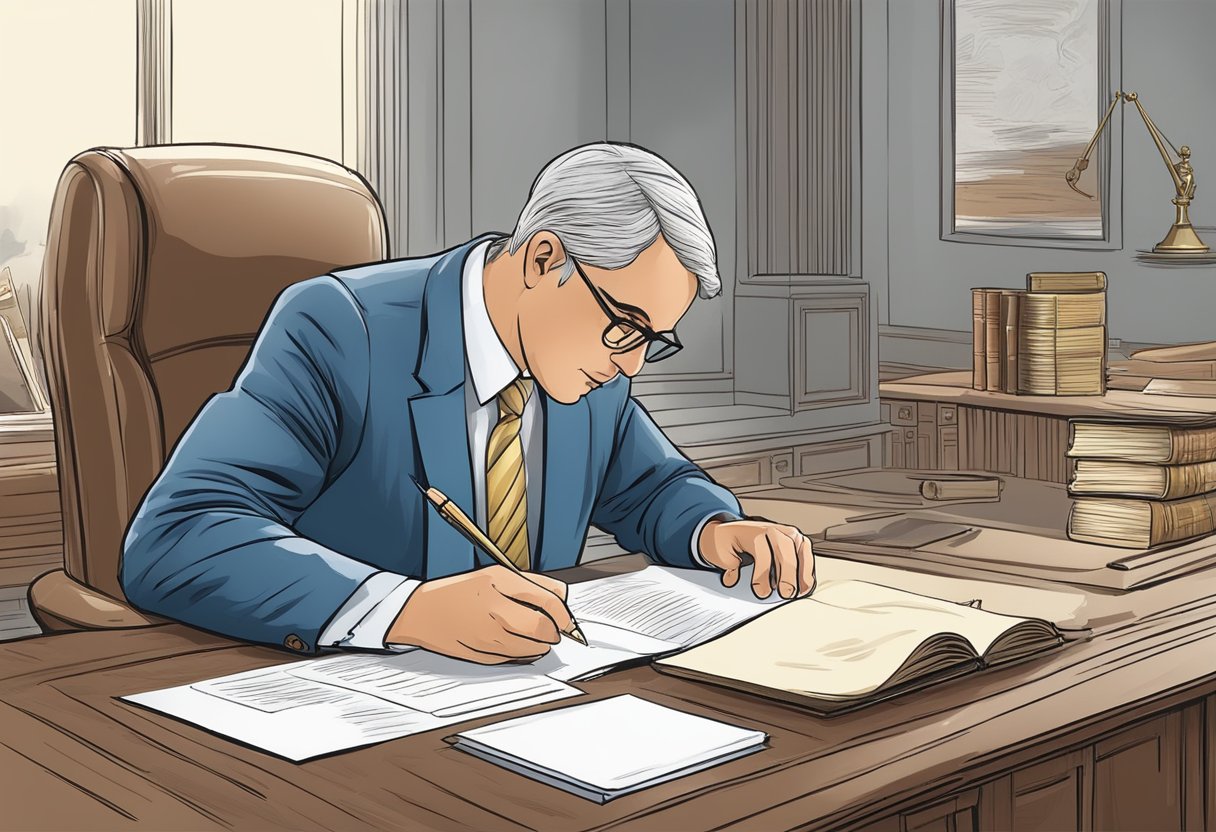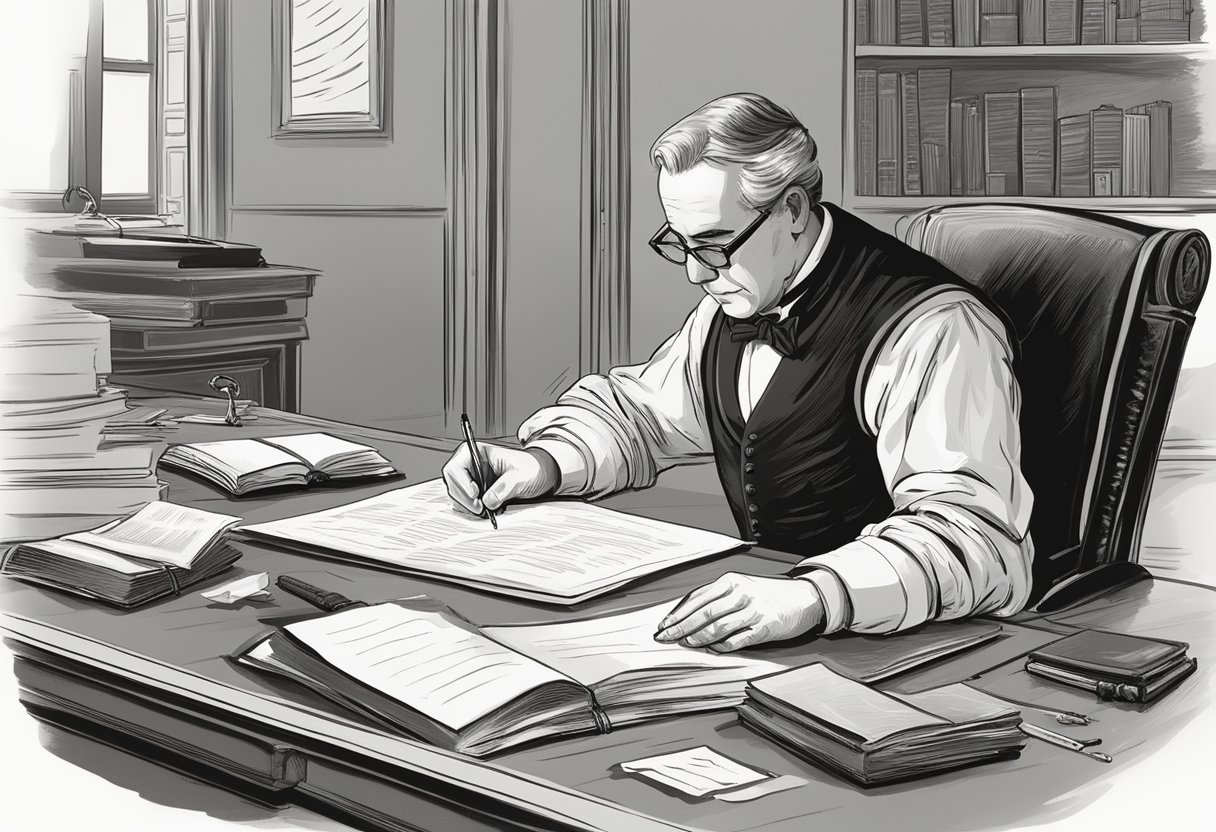A testator is an individual who has made a legally enforceable will before passing. This term specifically refers to a person who has drafted a document that dictates how their estate should be distributed upon their death. The process involves careful consideration to ensure that their wishes are clearly articulated and that the division of assets is done in accordance with their desires.
The role of the testator is central to estate planning, as this individual holds the authority to decide the beneficiaries of their estate. It is their responsibility to appoint an executor who will ensure that the provisions of the will are carried out as intended after their death. The legal requirements for a will to be valid vary by jurisdiction but generally include being of sound mind, not under undue influence, and meeting age criteria.
Creating a will is a critical step in managing one’s affairs, and the testator ensures that wealth and possessions are transferred according to personal wishes rather than default legal procedures. Without a valid will, the state may determine asset distribution, which might not reflect the decedent’s expressed intentions. Therefore, the actions taken by the testator in life have enduring consequences beyond their lifetime.
Defining a Testator
A testator is a legal term derived from the dictionary of law that specifies an individual who has written and executed a last will and testament. This document is legally binding and expresses the testator’s wishes regarding the distribution of their property and the care of any minor children upon their death.
- Attributes of a Testator:
- Must be of legal age
- Must be of sound mind
- Must express intentions voluntarily, without coercion
The role of a testator is critical, as they are responsible for deciding how their assets and responsibilities are managed posthumously. When a legally competent individual creates a will, they must do so with the intention of the will being a representation of their genuine wishes.
- Functions of the Testator:
- Designating heirs and beneficiaries
- Appointing executors to manage estate affairs
- Specifying guardians for minors, if applicable
It is important for individuals looking to become testators to understand the legal significance of their actions. Also, the implications their wills may have on their families and dependents. Their decisions and instructions are reverentially upheld in probate courts, assuming the will meets all required legal standards. Therefore, the careful and considered crafting of a will is often recommended with the guidance of a qualified legal professional.
Legal Requirements of a Testator

In order to create a legally binding will, a testator must meet certain requirements. These criteria ensure the will reflects the true intentions of the testator and complies with applicable laws.
Age and Mental Capacity
Age: Most state laws stipulate that a testator must be a legal adult, typically at least 18 years old, to create a valid will. This is to ensure that the individual has reached the age of majority and is legally capable of making such decisions.
Mental Capacity: The testator must also be of sound mind at the time of the will’s creation, which means having testamentary capacity. This involves:
- Understanding the nature and extent of their assets;
- Recognizing the natural beneficiaries of their estate; and
- Comprehending the legal effect of signing a will.
Witness Requirements
State laws often require the presence of witnesses during the signing of a will to protect against fraud. Ensuring that the testator is acting voluntarily and without duress. The typical requirements include:
- Number of Witnesses: Usually, at least two competent witnesses must observe the testator’s signing of the will or acknowledge the testator’s signature if it has been previously signed.
- Competency of Witnesses: Witnesses must be of sound mind and usually should not be beneficiaries of the will to avoid conflicts of interest.
Components of a Will

A will, also known as a last will and testament, lays out how a person’s assets and responsibilities are to be handled after their passing. Effective wills must be clear and comprehensive to ensure that the testator’s directives are legally upheld.
Key Elements
Testator: The individual creating the will.
Beneficiary: The person or entity allocated to receive assets.
Executor: The appointed individual responsible for executing the will’s terms.
- Assets and Property: Specific items or properties bequeathed to beneficiaries.
- Debts and Taxes: Instructions on how outstanding debts or taxes should be paid.
- Guardianship: Designation for the care of any dependents.
- Clear Identification of the Testator: Ensuring no ambiguity regarding whose will it is.
- Specificity in Beneficiaries and Assets: Precise detailing of asset distribution.
- Appointment of an Executor: This person will manage the estate and enact the will’s instructions.
- Instructions for Debts and Taxes: Guidance on how obligations are to be settled.
- Designation of a Guardian: In cases involving minors or dependents.
- Signatures: Required from the testator and witnesses to validate the will.
Types of Wills
- Holographic Will: A will entirely written by the testator’s hand, not widely accepted due to its lack of formal witnessing.
- Written Will: A more formal document, typically drafted with legal assistance and includes witnesses’ and a notary’s signatures.
- Comprehensive Will: An all-encompassing document laying out extensive details on the disposition of an entire estate.
| Type of Will | Description | Formal Requirements |
|---|---|---|
| Holographic Will | Handwritten by the testator; may not be witnessed. Not accepted in all regions. | None typically; subject to local law. |
| Written Will | Formally prepared and witnessed; often drafted with legal help. | Witnesses’ signatures, possibly notarization. |
| Comprehensive Will | Detailed will that provides instructions for the entirety of an individual’s estate, beyond simple assets. | Typically follows the same requirements as written wills. |
Roles and Responsibilities

When creating a will, a testator, or testatrix if female, has crucial duties to assign that ensure the execution of their wishes after their passing. These roles, primarily concerning the distribution of the estate and the care of minor children, are pivotal to preserving the testator’s intentions through the probate process.
The Executor
The executor is appointed by the testator to manage and settle the estate according to the will’s specifications. This individual’s responsibilities include:
- Inventorying the estate: Listing assets and determining their value.
- Paying debts and taxes: Ensuring all outstanding obligations and taxes are settled.
- Distribution of assets: Transferring property to the designated beneficiaries.
- Navigating probate: Filing necessary paperwork and appearing in court as required.
Choosing a responsible and trustworthy executor is a vital aspect of estate planning, as they play a central role in the probate process.
Guardianship Provisions
Setting up guardianship provisions is a fundamental responsibility for a testator with minor children. They must consider:
- Appointment of a guardian: Naming one or more individuals to care for minor children should the testator pass away.
- Instructions for upbringing: Guiding the children’s education, health care, and general welfare.
- Financial arrangements: Establishing trusts or funds to ensure the children’s financial needs are met.
Guardianship choices deeply reflect the testator’s desires for the future well-being of their minor children. It should align with the overall objectives of their estate planning.
Probate and Estate Administration

When a testator passes away, the legal process that follows involves proving the validity of the will, appointing an executor, and administering the distribution of the estate’s assets. Probate procedures formalize these steps, and through estate administration, assets are collected, managed, and distributed to the beneficiaries or heirs.
Probate Procedures
Probate is initiated in a probate court where the authenticity of the testator’s will is established. The procedure usually includes:
- Filing a petition with the court to open probate.
- Notifying heirs and beneficiaries as dictated by law.
- Proving the will is valid, which often requires a hearing before a probate judge.
- Appointing an executor or administrator to handle the estate.
- Inventorying the testator’s property and assets.
- Paying debts and taxes owed by the estate.
- Distributing the remaining assets according to the will or state law if there’s no will.
During these steps, certain documents and testimony from witnesses may be required to prove the will’s validity and verify the testator’s assets.
Administration of Assets
Upon appointment, the executor or administrator has a legal duty to administer the estate’s assets. This includes collecting and managing the estate’s property, often involving:
- Collection of assets, which may consist of bank accounts, real estate, life insurance, and personal property.
- Management of the estate, which could entail selling assets to pay debts or to distribute to beneficiaries.
- Distribution of the assets to the appropriate parties, following the instructions in the will or state law in the case of intestacy.
Throughout this process, the executor must maintain accurate records and may need to report to the probate court, detailing actions taken on behalf of the estate. Keeping track of all transactions and decisions is critical for a transparent and effective estate administration.
Special Types of Testaments

In the context of testaments, certain forms like trusts and conditional will carry specific implications and are crafted to meet the particular needs of the testator.
Trusts and Their Implications
A trust is a legal entity created within a will, allowing the testator to place assets under the management of a trustee for the benefit of designated beneficiaries. This arrangement can provide a level of control over the distribution of assets that a standard will cannot, potentially minimizing estate taxes and offering protection from creditors.
- Testamentary Trust: This is established by a will after the testator’s death, often to manage assets for minors or beneficiaries who might not be able to handle lump sum inheritances.
- Revocable Living Trust: Formed during the testator’s lifetime, it allows them to adjust terms and retain control over the trust assets, becoming irrevocable upon their death.
Conditions and Contingencies
A testament can include various conditions or contingencies that dictate how and when the inheritance is distributed. These stipulations must be legal and possible, and they provide a way for the testator to enforce personal wishes or create incentives.
- Conditional Bequests: Assets are granted to the beneficiary only if particular conditions are met. For example, a beneficiary might need to reach a certain age or achieve a specific educational goal.
- Contingent Guardians: In the case of minor children or dependents, a testator appoints guardians who will only assume responsibility under certain conditions, such as the absence of a surviving parent.
Understanding Testamentary Capacity

Testamentary capacity refers to the legal ability of an individual to make a valid will. This capacity is generally measured at the time the will is created. For a person, known as the testator, to have testamentary capacity, certain criteria must be met:
- Age: The individual must typically be of legal adult age, which is 18 in most jurisdictions.
- Sound Mind: The person must be of sound mind, which means:
- They understand the nature and extent of their property.
- They remember and know the natural beneficiaries of their estate.
- They comprehend the legal effect of creating a will.
- They are able to make decisions about how to distribute their assets.
If these criteria are not fulfilled, the validity of the will may be challenged in court after the individual has died.
The concept of a sound mind is often scrutinized if the testator is under medical care or has known mental health issues. Evidence may be presented that the testator either meets or lacks testamentary capacity.
Legislation and case law shape the tests for testamentary capacity and can vary by jurisdiction, but the general principles remain similar. Therefore, it is crucial for a testator to display clarity of intention and awareness when dictating how their estate should be managed posthumously.
Challenging the Validity of a Will

Challenging the validity of a will is an action typically carried out in a probate court. An individual may contest a will if they believe it does not accurately reflect the intentions of the testator, the person who drafted the will.
Reasons for Challenge:
- Lack of Mental Capacity: The testator may not have been mentally capable of making decisions when the will was created.
- Undue Influence: The testator might have been pressured or coerced into making the will.
- Fraud or Forgery: The will may be fraudulent or a forgery, meaning it was not actually created by the testator.
- Improper Execution: The will was not executed properly according to the state laws (e.g., lacking necessary witnesses).
Evidence and Witnesses:
- Documentation: Medical records, video footage, or previous will drafts could be presented.
- Testimony: Witnesses such as family members, friends, or professionals like doctors and lawyers may provide statements.
The estate of the testator often remains in limbo during the contest, as the legitimacy of the document is under scrutiny. Legal representation is usually engaged by both sides to navigate the complexities of estate law.
Probate Proceedings:
- Step 1: Filing a contest in the probate court prior to the distribution of the estate.
- Step 2: Gathering evidence that supports the reason for challenging the will.
- Step 3: The court examines the evidence and hears testimonies.
- Step 4: The court makes a decision on the validity of the will, which can be further appealed.
Winning a challenge could lead to a previous version of the will taking effect or intestate succession laws applying if no prior valid will is found.
Conclusion

A testator is an individual who has created a legally valid will to designate the distribution of their assets posthumously. The document must meet specific legal requirements to be enforceable. These requirements often include the individual’s legal capacity to devise a will, the volition to do so, and adherence to state or regional laws.
- Legal capacity: The testator must be of sound mind and of the age majority, typically 18 years or older.
- Voluntary action: The decision to create a will must be made freely, without coercion.
- Legal adherence: The will must comply with the stipulations of the jurisdiction in which it is created, including witness and signature protocols.
The role of the testator is crucial in estate planning, ensuring that their wishes are respected regarding the distribution of their estate, the care of minor children, and other personal directives. It is their responsibility to ensure that the will is regularly updated to reflect current circumstances and wishes. In the absence of a will, the estate of the deceased would be distributed according to the default laws of intestacy, which may not align with their preferences. Therefore, the act of creating and maintaining a will is integral to legacy planning and the protection of a testator’s intentions after their passing.
